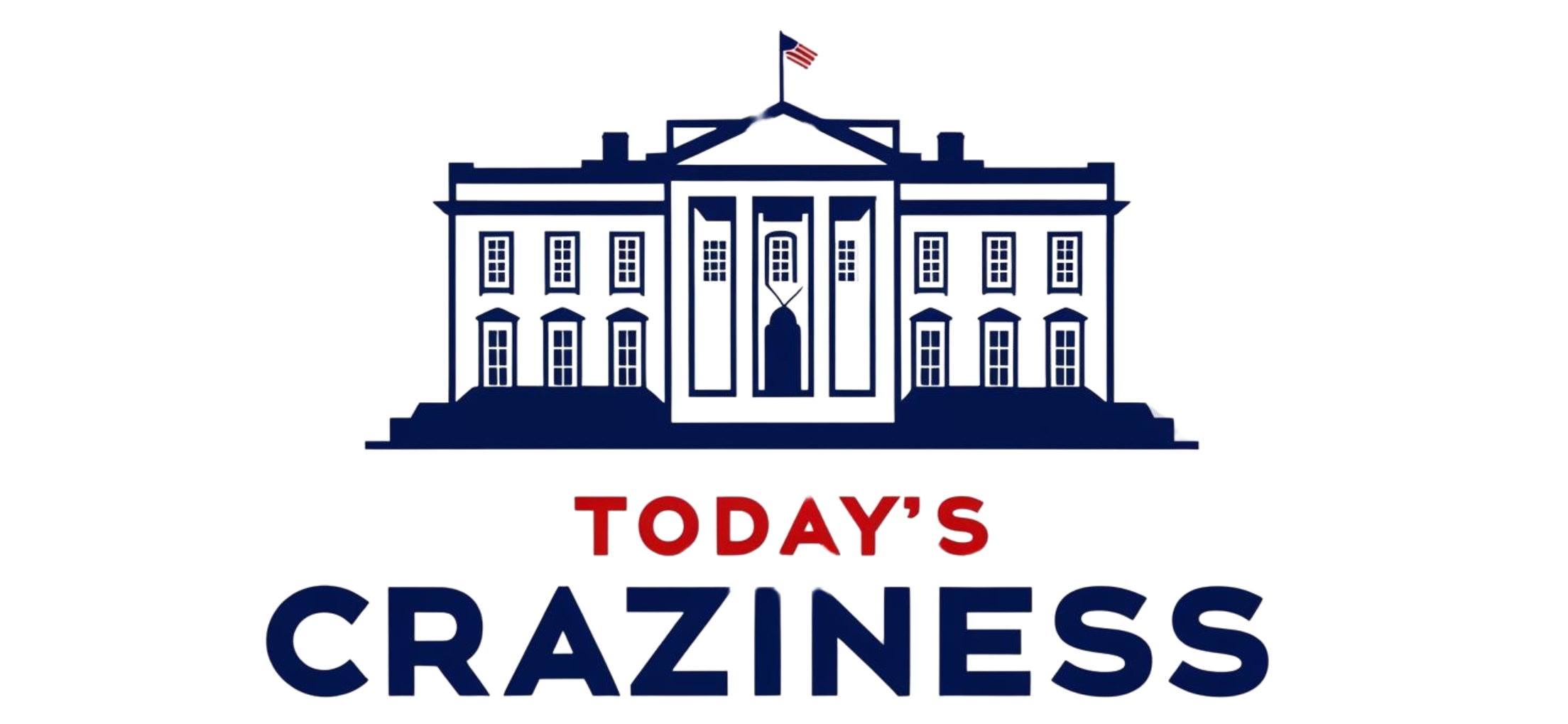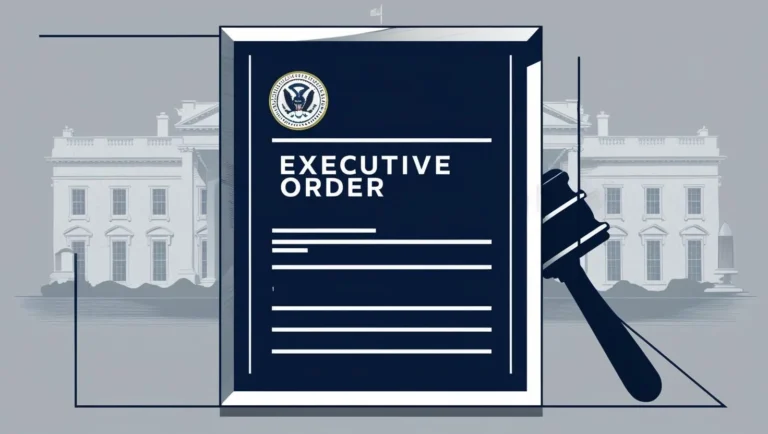Trump reshapes federal oversight with sweeping executive orders targeting DEI mandates, education accreditation, and school discipline. The DOJ escalates enforcement on gender-related care, while Treasury demands IMF reforms. Simultaneously, new initiatives in AI, skilled trades, and HBCU innovation signal a broader realignment of executive power and domestic policy priorities.
Today, April 23, 2025, several U.S. executive departments and White House offices announced or executed major policy changes, enforcement actions, and new national initiatives. Below is a categorized summary of today’s verified primary-sourced activities, organized by department and impact area.
🏛️ White House
1️⃣ Policy Changes & Legislative Actions
[A] Executive Order to Restore Meritocracy in Government Hiring and Education
[1] 🔑 Key Takeaways:
- President Trump signed a new executive order to eliminate Diversity, Equity, and Inclusion (DEI) mandates from federal education and hiring systems.
- The move affects government agencies, federal contractors, and public institutions receiving federal funding.
- It’s expected to reshape hiring standards and academic accreditation protocols nationwide.
[2] 📄 Summary: The President issued a sweeping executive order aimed at revoking all DEI-related policies implemented under prior administrations. The order re-establishes merit-based hiring and admissions as a federal standard. Institutions found noncompliant risk losing federal funding. The administration cited declining academic standards and divisive workplace practices as justification. The action is part of a broader federal overhaul targeting progressive policy structures in federal governance and education.
[3] 📜 Bibliography:
- Date: April 23, 2025
- Source: White House
- URL: https://www.whitehouse.gov/fact-sheets/2025/04/fact-sheet-president-donald-j-trump-signs-landmark-order-to-restore-equality-of-opportunity-and-meritocracy
- Verification: “These sources were verified as published on April 23, 2025, Eastern Time (ET).”
3️⃣ New Initiatives & Departmental Programs
[B] AI Education Initiative for U.S. Students
[1] 🔑 Key Takeaways:
- The White House announced a new AI education initiative aimed at integrating artificial intelligence curricula into K-12 and vocational programs.
- It emphasizes domestic workforce readiness and tech-sector competitiveness.
- Federal grants and partnerships with private firms are central to the plan.
[2] 📄 Summary: As part of a renewed emphasis on domestic innovation, the White House revealed an educational initiative promoting AI literacy among American students. The program encourages STEM-focused curriculums and technical certification tracks, especially in underserved areas. Funding will be distributed through Department of Education partnerships and federal tech training programs. The administration hopes the effort will strengthen U.S. tech sovereignty and workforce preparedness in the evolving global AI landscape.
[3] 📜 Bibliography:
- Date: April 23, 2025
- Source: White House
- URL: https://www.whitehouse.gov/fact-sheets/2025/04/fact-sheet-president-donald-j-trump-advances-ai-education-for-american-youth
- Verification: “These sources were verified as published on April 23, 2025, Eastern Time (ET).”
4️⃣ Enforcement Actions & Compliance Measures
[C] Reinstatement of School Discipline Guidelines
[1] 🔑 Key Takeaways:
- President Trump reinstated Obama-era school discipline guidance rolled back under previous leadership.
- The measure targets disruptive behavior and school safety.
- Civil rights and education advocates are closely monitoring its implementation.
[2] 📄 Summary: Reinforcing his education reform platform, President Trump reinstated guidelines empowering schools to suspend or expel students based on behavioral disruptions. The order includes specific language supporting teachers’ and administrators’ authority to enforce order and remove persistent violators. Civil liberties groups have raised concerns about potential disparities in enforcement, particularly among minority students. Supporters argue the move restores necessary authority to maintain safe learning environments.
[3] 📜 Bibliography:
- Date: April 23, 2025
- Source: White House
- URL: https://www.whitehouse.gov/fact-sheets/2025/04/fact-sheet-president-donald-j-trump-reinstates-commonsense-school-discipline-policies
- Verification: “These sources were verified as published on April 23, 2025, Eastern Time (ET).”
🏛️ Department of Justice (DOJ)
4️⃣ Enforcement Actions & Compliance Measures
[D] DOJ Cancels Hundreds of Federal Crime Grants
[1] 🔑 Key Takeaways:
- The DOJ revoked hundreds of federal grants earmarked for law enforcement and victim assistance programs.
- The cancellations follow an internal review citing redundancy, misallocation, and political bias.
- State and local agencies are scrambling to address funding shortfalls.
[2] 📄 Summary: Attorney General Bondi directed the Office of Justice Programs to cancel over 400 grants affecting crime victim services, police training, and youth prevention programs. The DOJ cited inefficiency, political partiality, and inconsistent oversight as reasons. Agencies in urban areas stand to lose millions in expected funding. The decision could reshape crime prevention initiatives nationwide and potentially trigger lawsuits or congressional oversight.
[3] 📜 Bibliography:
- Date: April 23, 2025
- Source: Reuters
- URL: https://www.reuters.com/world/us/us-justice-department-cancels-hundreds-grants-police-crime-victims-2025-04-23
- Verification: “These sources were verified as published on April 23, 2025, Eastern Time (ET).”
[E] DOJ Directive on Gender-Affirming Care Investigations
[1] 🔑 Key Takeaways:
- The Attorney General ordered nationwide investigations into clinics and providers offering gender-affirming care to minors.
- The directive cites potential violations of new federal regulations and child protection laws.
- Critics warn of potential civil rights violations and health care discrimination.
[2] 📄 Summary: The Justice Department released a new directive mandating state attorneys general and U.S. Attorneys to assess compliance with updated federal rules on medical treatment for minors. The policy centers on whether procedures such as hormone therapy or surgery constitute federally prohibited acts under child endangerment statutes. While praised by conservative groups as a protective measure, LGBTQ+ rights organizations called the effort politically motivated and medically dangerous.
[3] 📜 Bibliography:
- Date: April 23, 2025
- Source: CNN
- URL: https://www.cnn.com/2025/04/23/politics/bondi-justice-department-memo-gender-affirming-care/index.html
- Verification: “These sources were verified as published on April 23, 2025, Eastern Time (ET).”
🏛️ Department of the Treasury
8️⃣ International Relations & Global Policy Engagements
[F] U.S. Calls for Reforms to IMF and World Bank
[1] 🔑 Key Takeaways:
- Treasury Secretary Scott Bessent publicly endorsed the IMF and World Bank while calling for governance reforms.
- The U.S. wants to modernize institutional voting structures and expand private sector participation.
- This could influence global development policy and financial stability.
[2] 📄 Summary: Speaking at a Washington economic forum, Treasury Secretary Bessent reaffirmed U.S. support for international financial institutions but criticized their outdated governance models. He proposed updates to voting shares and greater inclusion of developing economies and private financiers. The administration hopes these reforms will make the institutions more agile and reflective of the global economy’s current structure. Allies responded cautiously, awaiting further specifics.
[3] 📜 Bibliography:
- Date: April 23, 2025
- Source: Bloomberg
- URL: https://www.bloomberg.com/news/articles/2025-04-23/bessent-says-us-backs-imf-world-bank-while-calling-for-reforms
- Verification: “These sources were verified as published on April 23, 2025, Eastern Time (ET).”
🏛️ Department of Education
1️⃣ Policy Changes & Legislative Actions
[G] Accreditation System Reform Executive Order
[1] 🔑 Key Takeaways:
- President Trump signed an executive order to restructure the U.S. higher education accreditation process.
- The order aims to eliminate “woke ideology” and reward institutions that uphold “merit-based standards.”
- Accrediting agencies must now prove ideological neutrality or risk decertification.
[2] 📄 Summary: The White House directed the Department of Education to revise accreditation standards for colleges and universities, emphasizing transparency, job placement, and merit. Schools aligned with politically progressive ideologies may face scrutiny under the new guidance. Critics warn the order may suppress academic freedom and target historically progressive institutions. Education Secretary praised the move as a reset of academic integrity and accountability.
[3] 📜 Bibliography:
- Date: April 23, 2025
- Source: White House
- URL: https://www.whitehouse.gov/fact-sheets/2025/04/fact-sheet-president-donald-j-trump-reforms-accreditation-to-strengthen-higher-education
- Verification: “These sources were verified as published on April 23, 2025, Eastern Time (ET).”
3️⃣ New Initiatives & Departmental Programs
[H] Support for Historically Black Colleges and Universities (HBCUs)
[1] 🔑 Key Takeaways:
- The Trump administration launched a renewed initiative to promote innovation at HBCUs.
- The program includes expanded federal funding and private partnerships.
- The policy aims to boost tech and entrepreneurship opportunities in underserved communities.
[2] 📄 Summary: Through a newly signed executive order, the Department of Education and White House Initiative on HBCUs will provide resources for curriculum development, faculty training, and entrepreneurship programs. The administration states this supports long-standing efforts to close opportunity gaps. Federal funding incentives will be linked to measurable performance outcomes. Civil rights leaders offered measured praise but cautioned against politicizing HBCU engagement.
[3] 📜 Bibliography:
- Date: April 23, 2025
- Source: White House
- URL: https://www.whitehouse.gov/presidential-actions/2025/04/white-house-initiative-to-promote-excellence-and-innovation-at-historically-black-colleges-and-universities
- Verification: “These sources were verified as published on April 23, 2025, Eastern Time (ET).”
🏛️ Department of Commerce / Trade Policy (via Executive Action)
6️⃣ Economic & Market Impact
[I] Exemption of U.S. Carmakers from Select Tariffs
[1] 🔑 Key Takeaways:
- President Trump moved to exempt domestic car manufacturers from specific tariffs.
- The decision aims to lower manufacturing costs and stabilize auto sector growth.
- It reflects ongoing trade tensions and industrial favoritism strategies.
[2] 📄 Summary: In an effort to relieve inflationary pressures in the auto industry, the administration will exempt U.S.-based automakers from certain tariffs on imported components. The order affects electric vehicle manufacturers and legacy automakers alike. Foreign carmakers and suppliers are concerned the move gives U.S. firms an unfair competitive edge. Industry analysts predict a short-term boost in vehicle production and pricing relief for American consumers.
[3] 📜 Bibliography:
- Date: April 23, 2025
- Source: Reuters
- URL: https://www.reuters.com/world/us/trump-plans-exempt-carmakers-some-tariffs-ft-reports-2025-04-23
- Verification: “These sources were verified as published on April 23, 2025, Eastern Time (ET).”
🏛️ Department of Labor (via Executive Action)
3️⃣ New Initiatives & Departmental Programs
[J] Skilled Trades Training Initiative
[1] 🔑 Key Takeaways:
- The White House unveiled a plan to expand skilled trades training for non-college-bound youth.
- Federal apprenticeship programs will receive additional funding.
- Employers are encouraged to offer job-based certifications and training pipelines.
[2] 📄 Summary: The administration is directing the Departments of Labor and Education to collaborate with private employers to create alternative career pathways in industries like manufacturing, logistics, and energy. This initiative targets high school graduates and displaced workers. The program also includes tax credits for employers who hire and train apprentices. Labor groups have applauded the move, but warned against diverting resources from higher education.
[3] 📜 Bibliography:
- Date: April 23, 2025
- Source: Reuters
- URL: https://www.reuters.com/world/us/trump-expected-sign-order-pushing-training-skilled-trades-2025-04-23
- Verification: “These sources were verified as published on April 23, 2025, Eastern Time (ET).”
🏛️ Department of State & Homeland Security
No notable activities, actions, or announcements from these departments met today’s primary source, timestamp, and publication criteria.
📜 Bibliography
These sources were verified as published on April 23, 2025, Eastern Time (ET).
- Trump Reforms Accreditation to Strengthen Higher Education – White House
- Trump Reinstates Commonsense School Discipline Policies – White House
- Trump Signs Landmark Order to Restore Meritocracy – White House
- Trump Advances AI Education for American Youth – White House
- Trump Launches Initiative to Support HBCUs – White House
- DOJ Cancels Hundreds of Police, Crime Grants – Reuters
- DOJ Directs Investigations Into Gender-Affirming Care – CNN
- Treasury Secretary Calls for IMF and World Bank Reform – Bloomberg
- Trump Pushes Skilled Trades Training Programs – Reuters
- Trump Exempts U.S. Carmakers from Select Tariffs – Reuters



